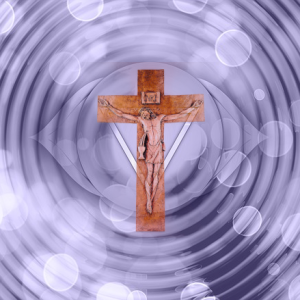Episodes

Wednesday Jan 30, 2019
CNAG: Happiness
Wednesday Jan 30, 2019
Wednesday Jan 30, 2019
Cheating a bit today, since this issue goes far beyond the realm of merely New Age concepts into the way the words "happy" and "happiness" have mutated in definition over the centuries. It's not unlike the situation with the word "substance." There is all the difference in the world between Thomas Aquinas' definition of "substantio" or the "subst-" in "transubstantiation" and the idea of a "chemical substance." Likewise, Boethius' or Augustine's "felix" apparently is an almost complete stranger to the modern definition of "happy" as, most notably, a fairly shallow positive emotion.
The classical philosophical definition of happy does not even make the cut in Webster's nine-subpart definition listed above. For Plato, Aristotle, and centuries of philosophers down to the present, the words cognate to "felix" or "happy" were used to describe a human being living in the best way possible, with all the virtuous habits and use of reason necessary for that to happen.
So far was happiness from being one particular emotion, it was possible to debate whether you could know whether a man was truly happy until after he was dead, and all his choices had been made and their consequences tallied up.
I stumbled across a podcast by a local priest recently in which he gave a sweeping overview of Western history's idea of God or the gods and God's will. Interestingly, he titled it "On Happiness." In it, he comments that the classical and high medieval sense was that God's will was simply for human beings to reach this optimal state of happiness, and God's laws were means to that end. Bishop Barron likes to quote one of the ante-Nicene Fathers, Ignatius of Antioch perhaps, as saying, "The glory of God is man fully alive." This gave way, Fr. Hollowell comments, to the nominalist late medieval and early modern idea that God is so "free" that He cannot possibly have been somehow constrained to give us laws that were merely good for us; they had to be given for some inscrutable reason of divine randomness, confused with freedom.
So very many of us remaining religious folk, as Fr. Hollowell notes (quite insightfully, I think), are just going through the motions and doing this and abstaining from that just because "those are the rules," with little if any meaningful sense of why those rules actually benefit us. It's a major bridge to cross for many of us to return to that state of innocent and childlike trust that God means the best for us, despite all the pain that we go through: the pain that comes and finds us no matter what we do, and the pain we incur turning aside from things that are against the rules... or that, eventually, we really have come to learn are bad for us.
Many things are on the other side of that bridge. There is not an end to suffering, but there is a sense that both the suffering and everything else has a purpose, and that sense of purpose leads to more frequent experience of the feelings of joy, contentment... possibly even happiness.
CNAG is the Catholic-New Age Glossary... not backed by Webster's or any other authority. These meditations are here on That's So Second Millennium because they are an attempt to find maximum harmony between different strands of psychology and spirituality as they are being explored and lived out in Western culture today. It flows from a respect for people's reasons for doing what they do and thinking what they think.


No comments yet. Be the first to say something!